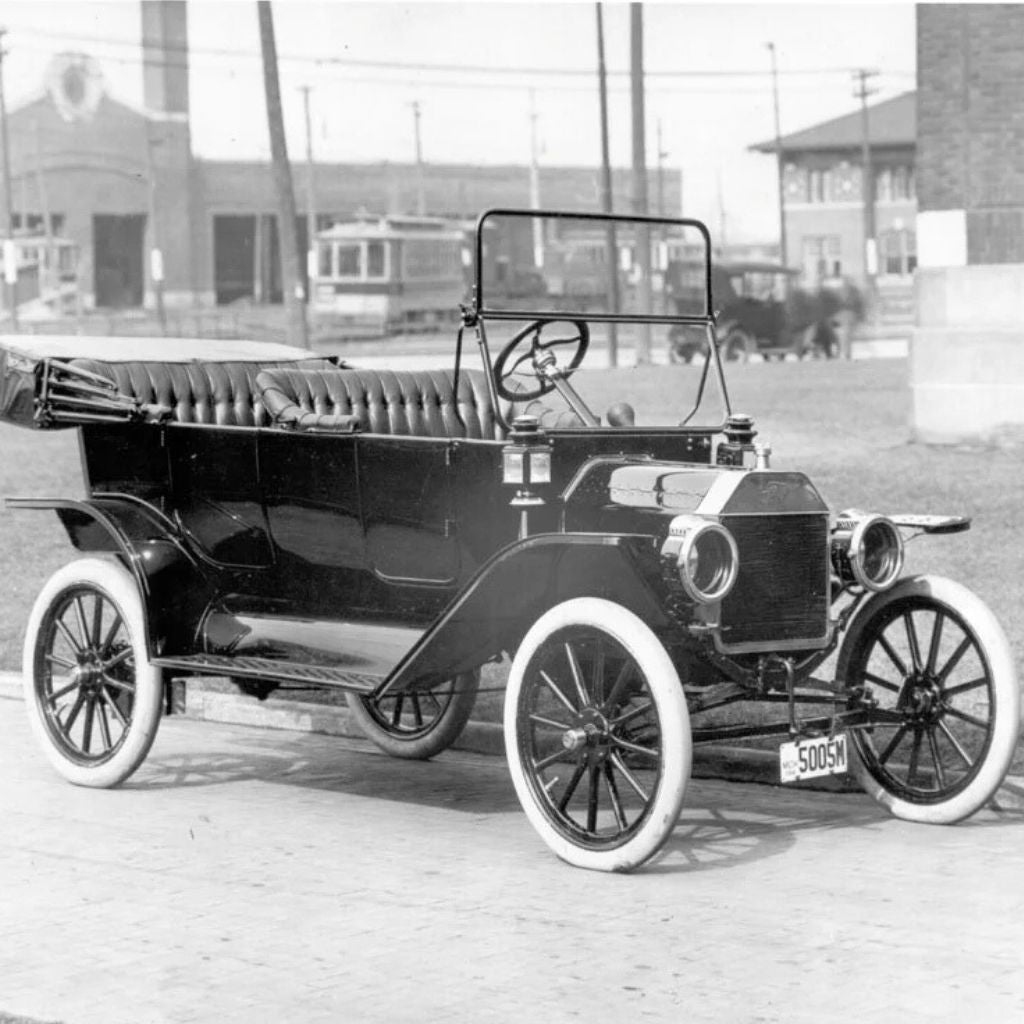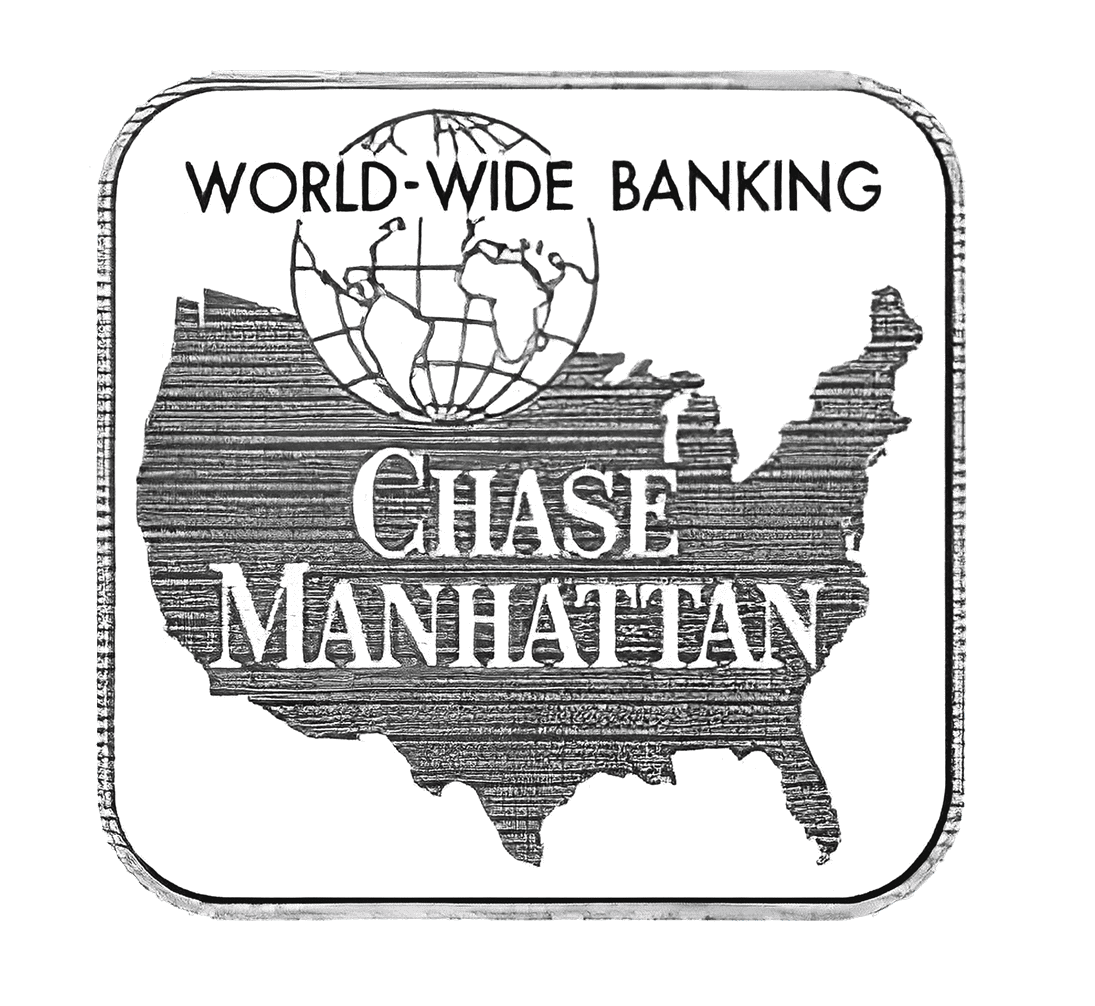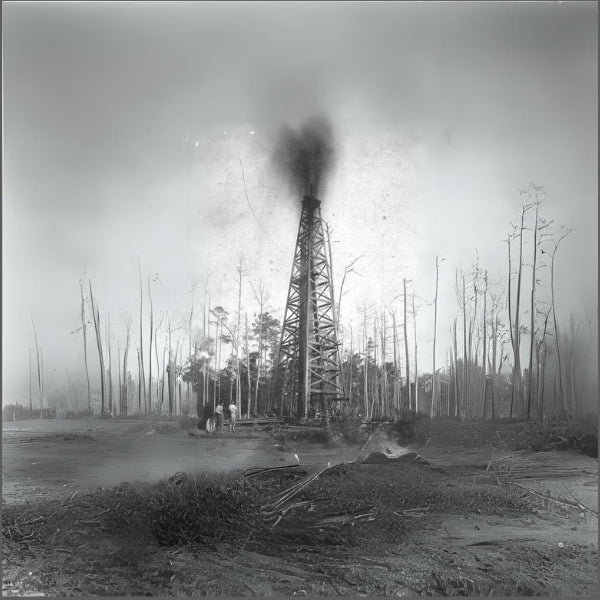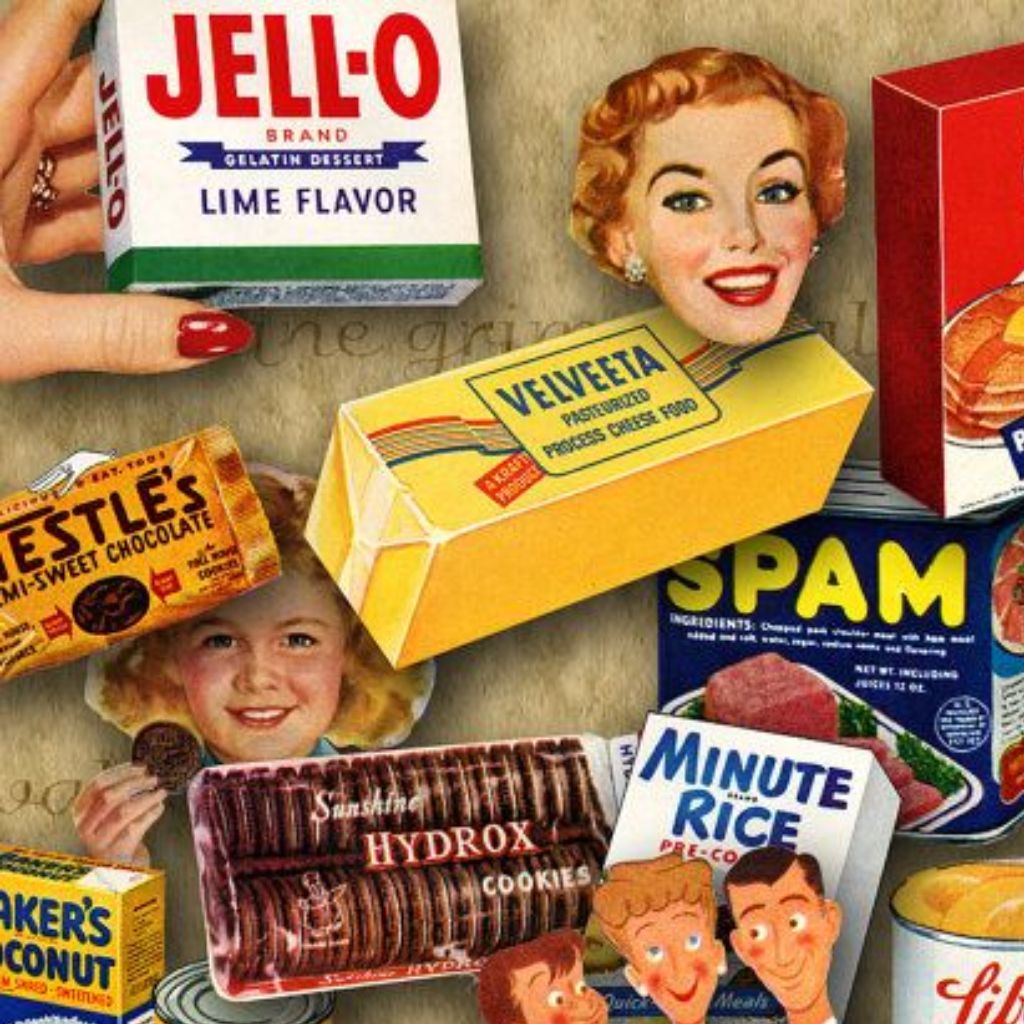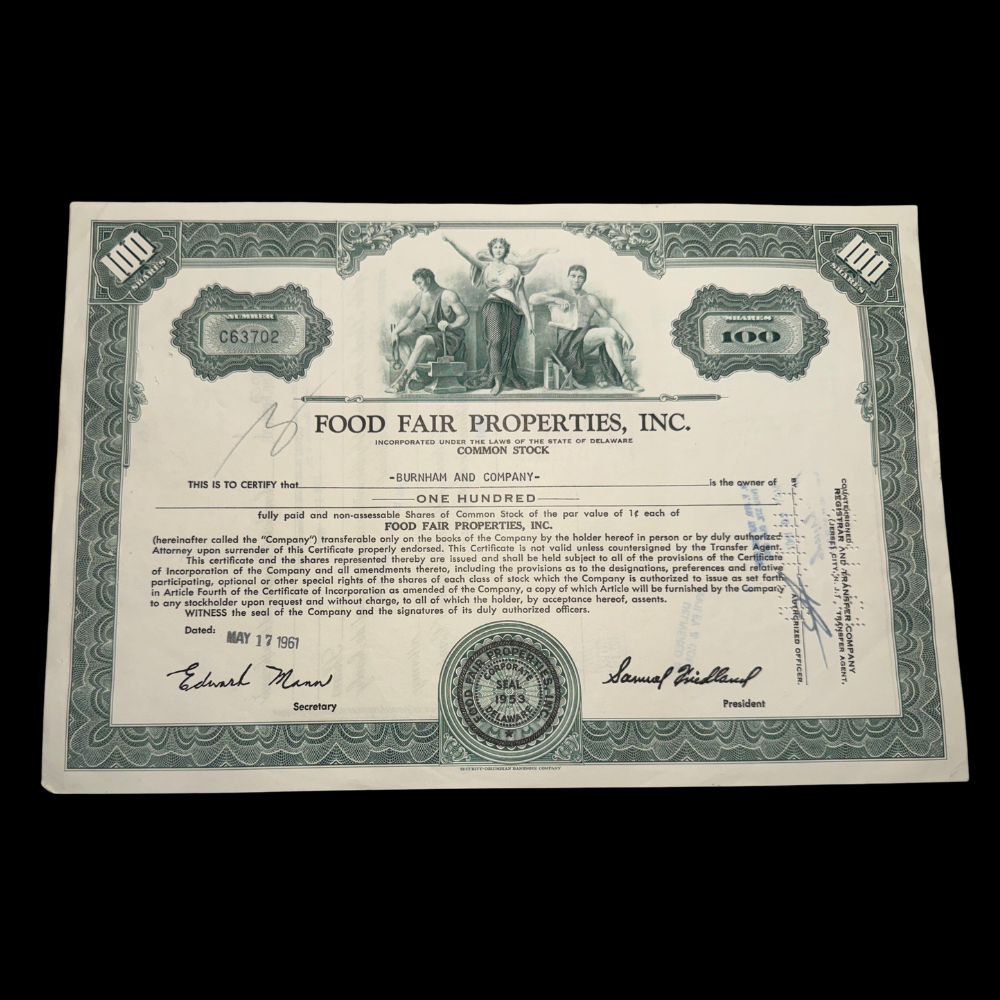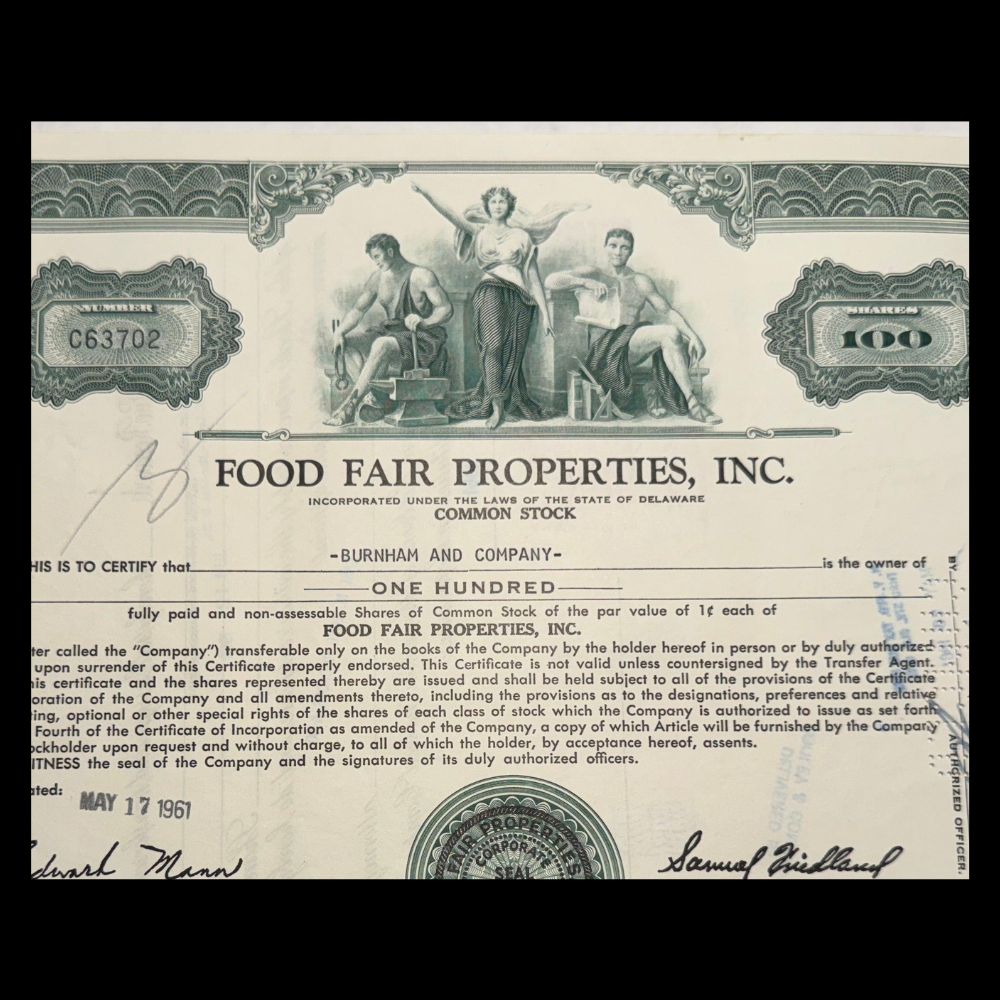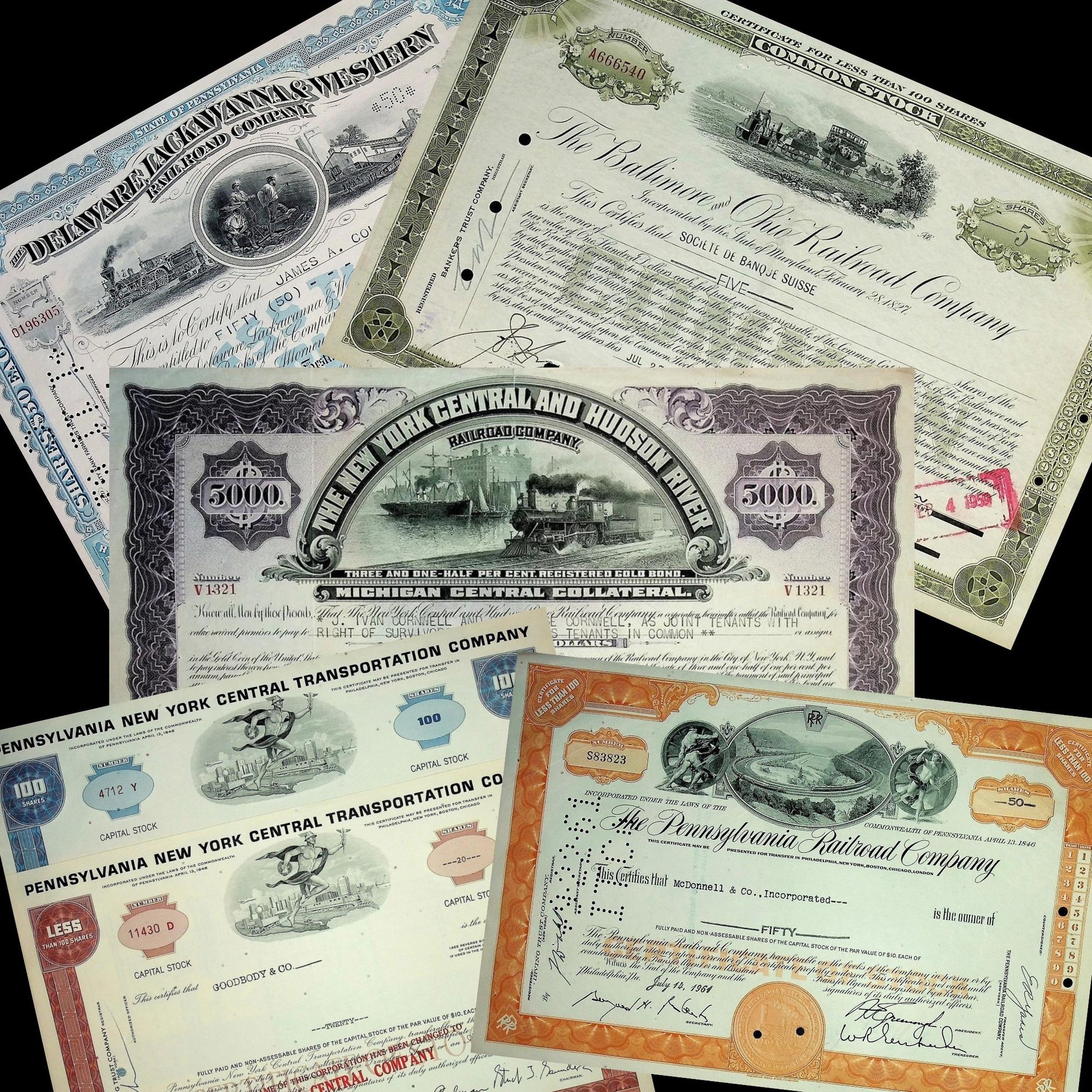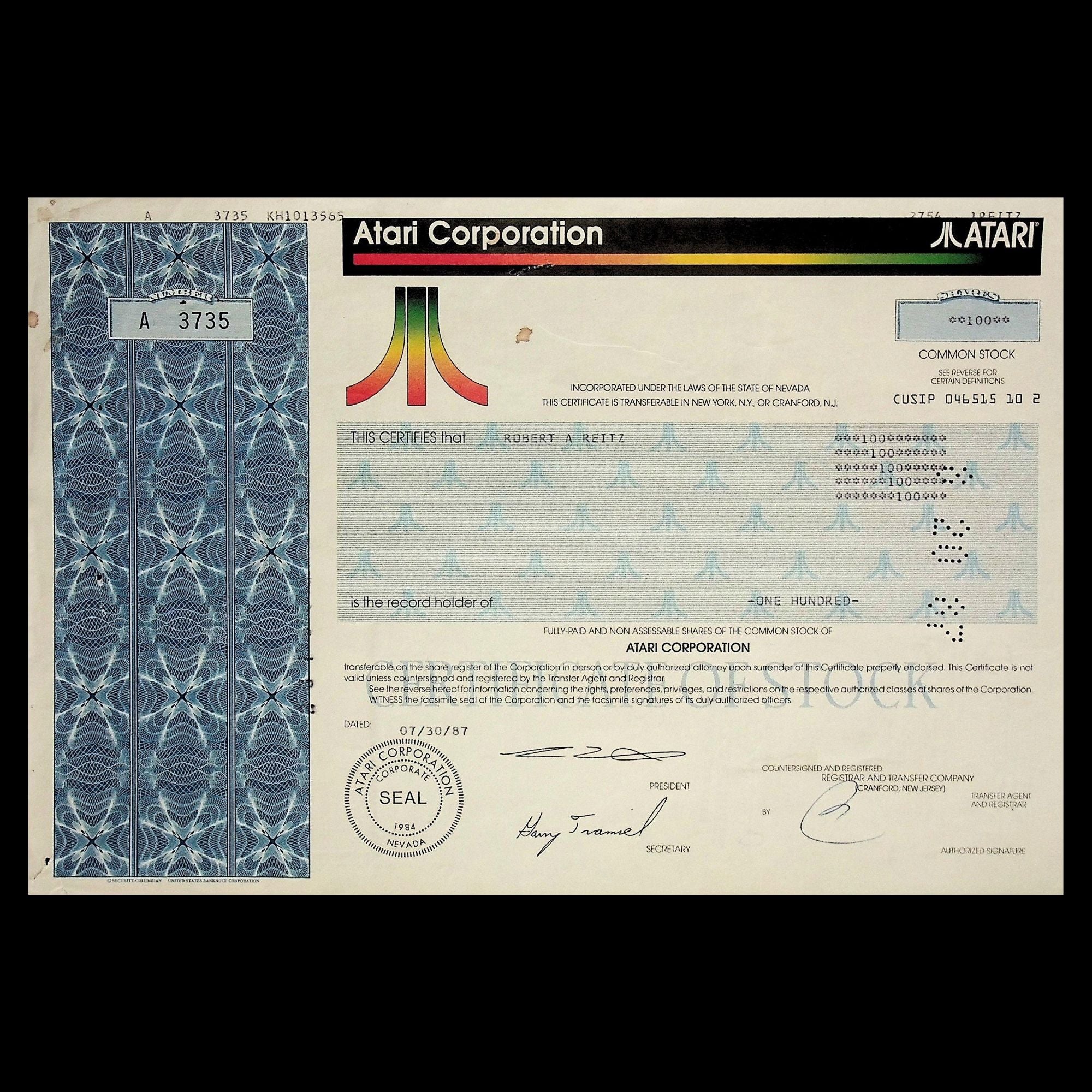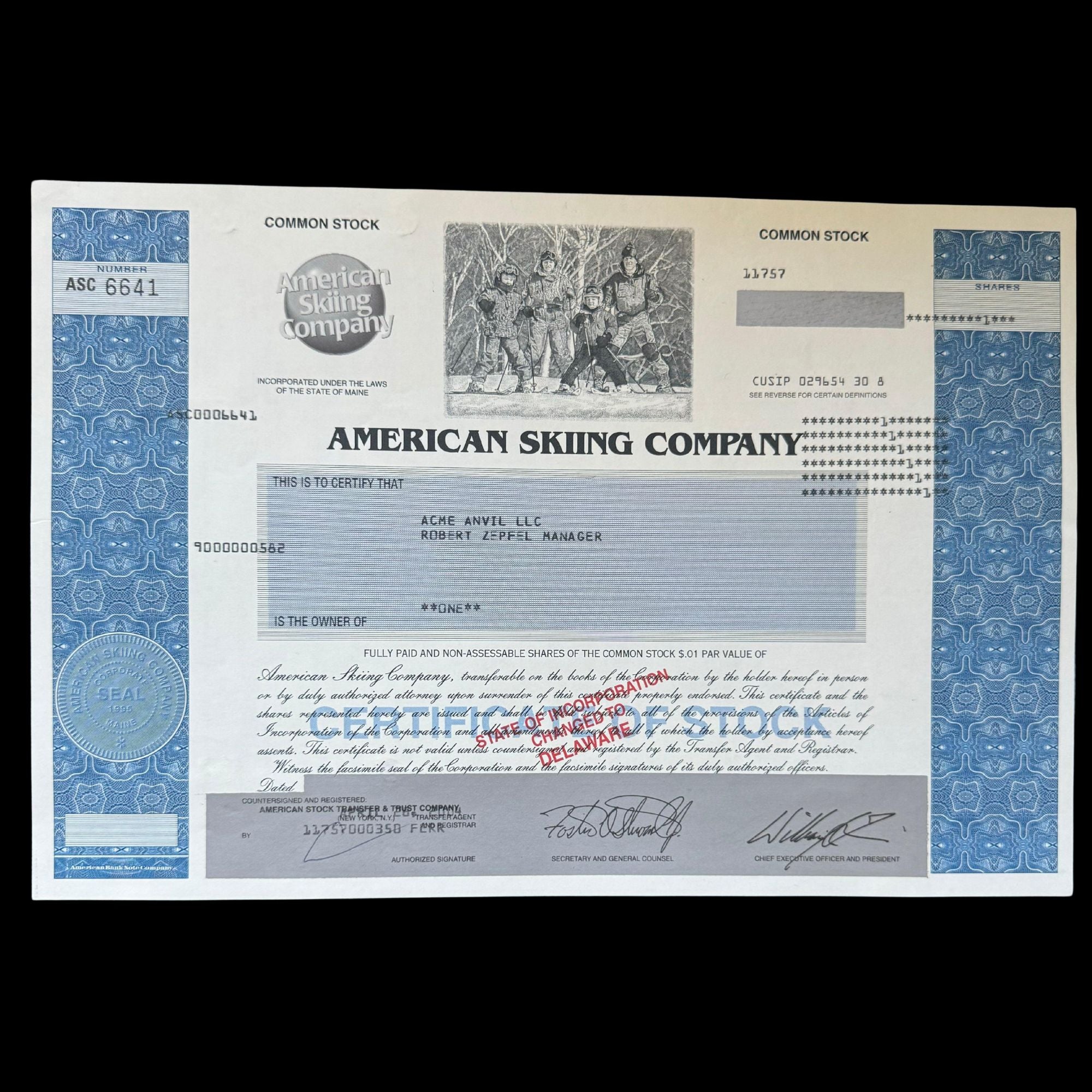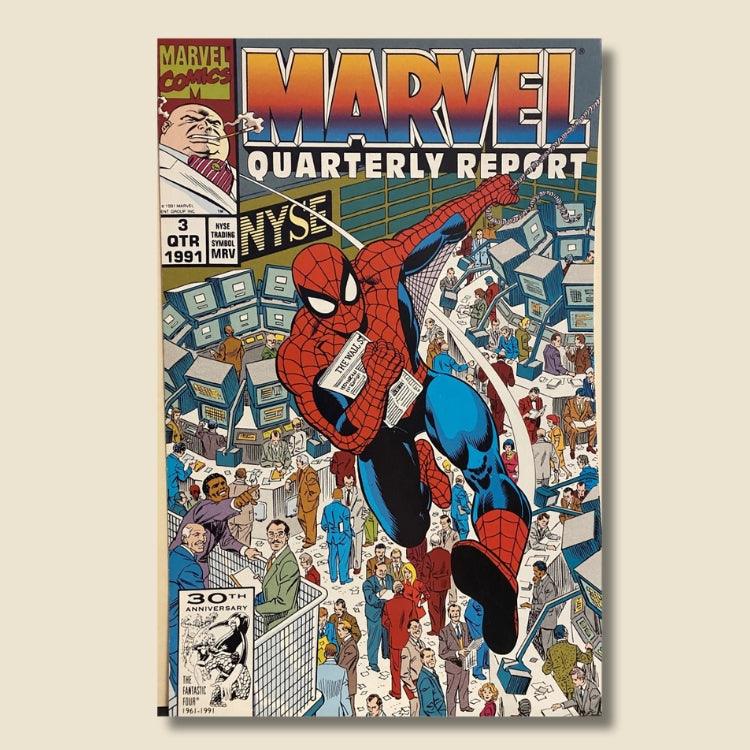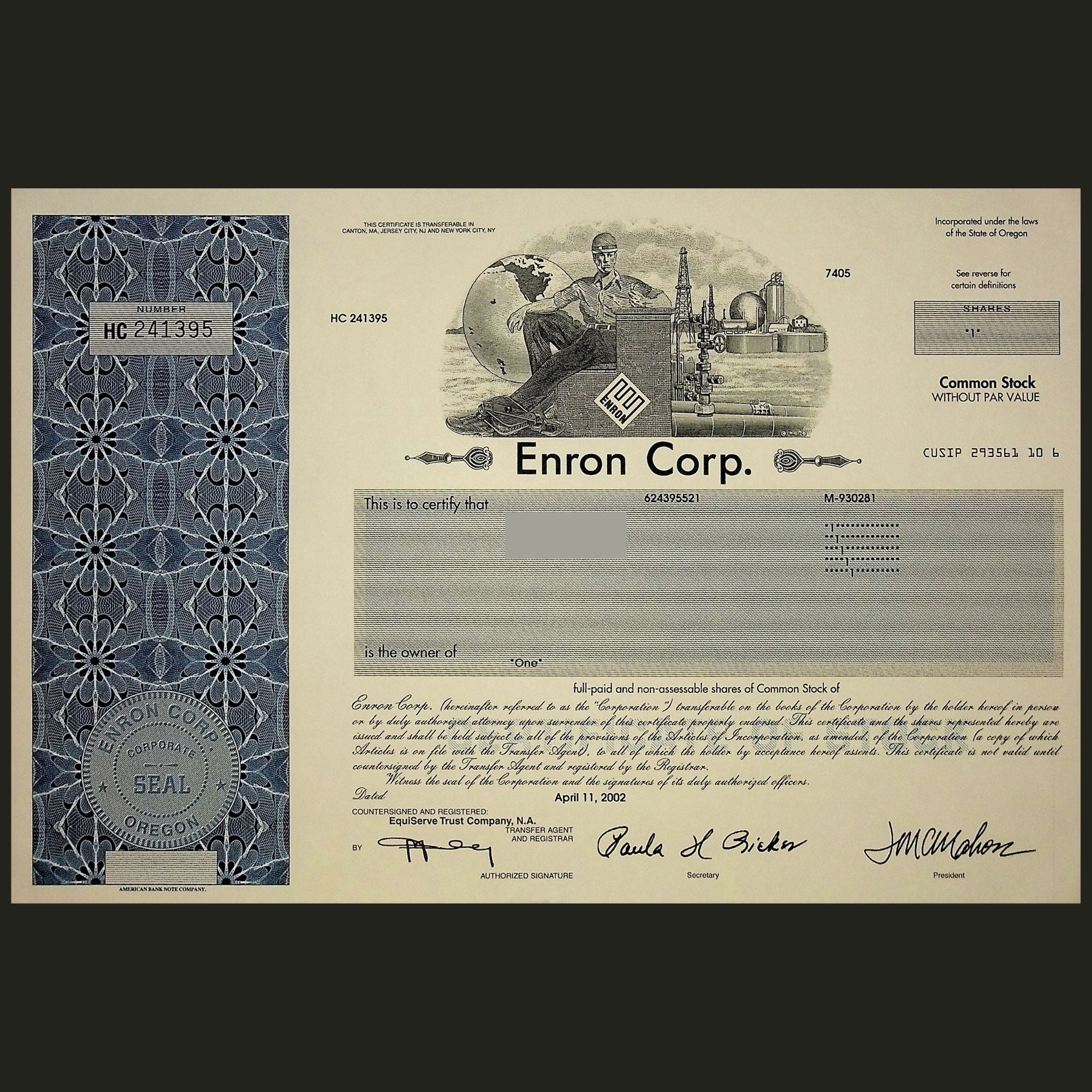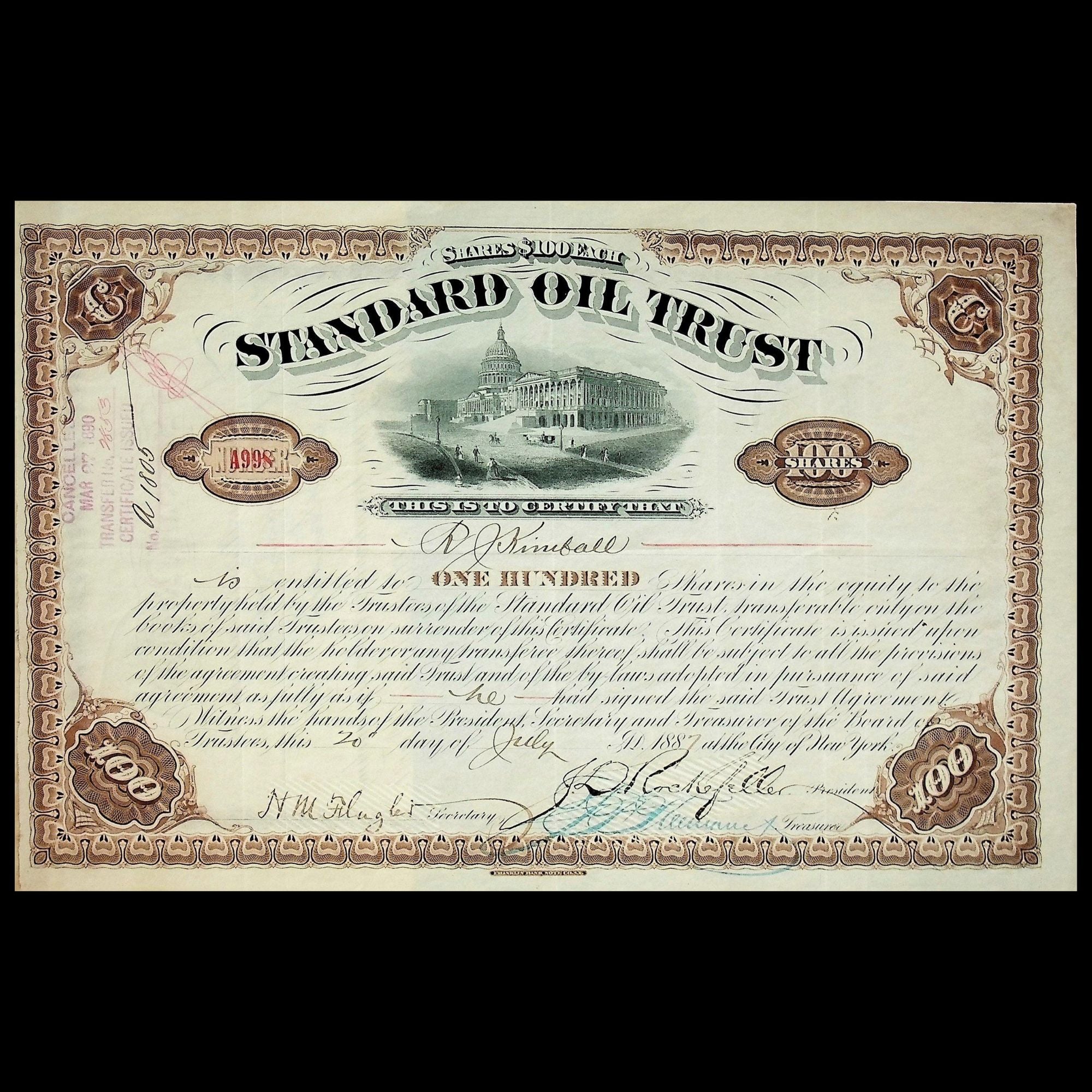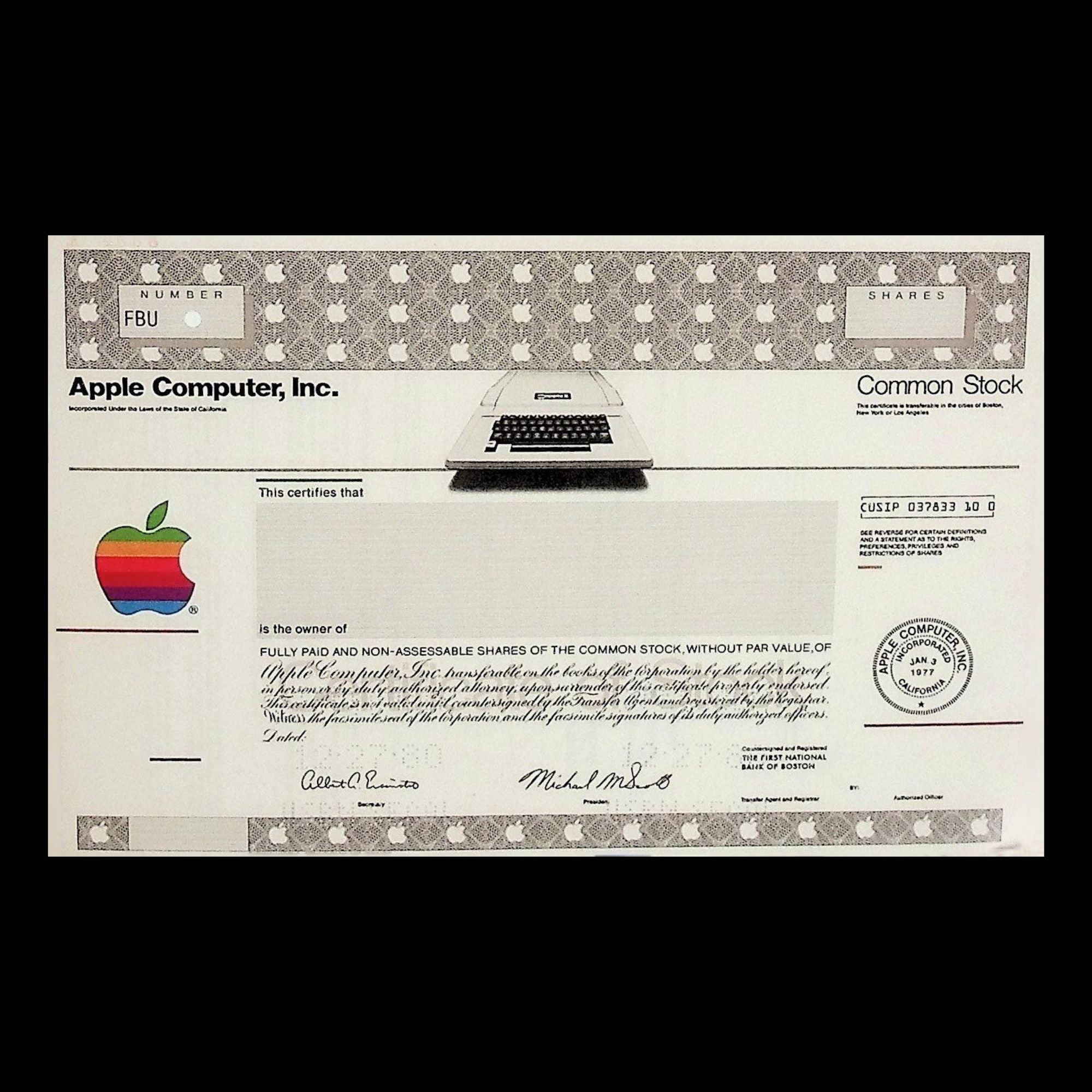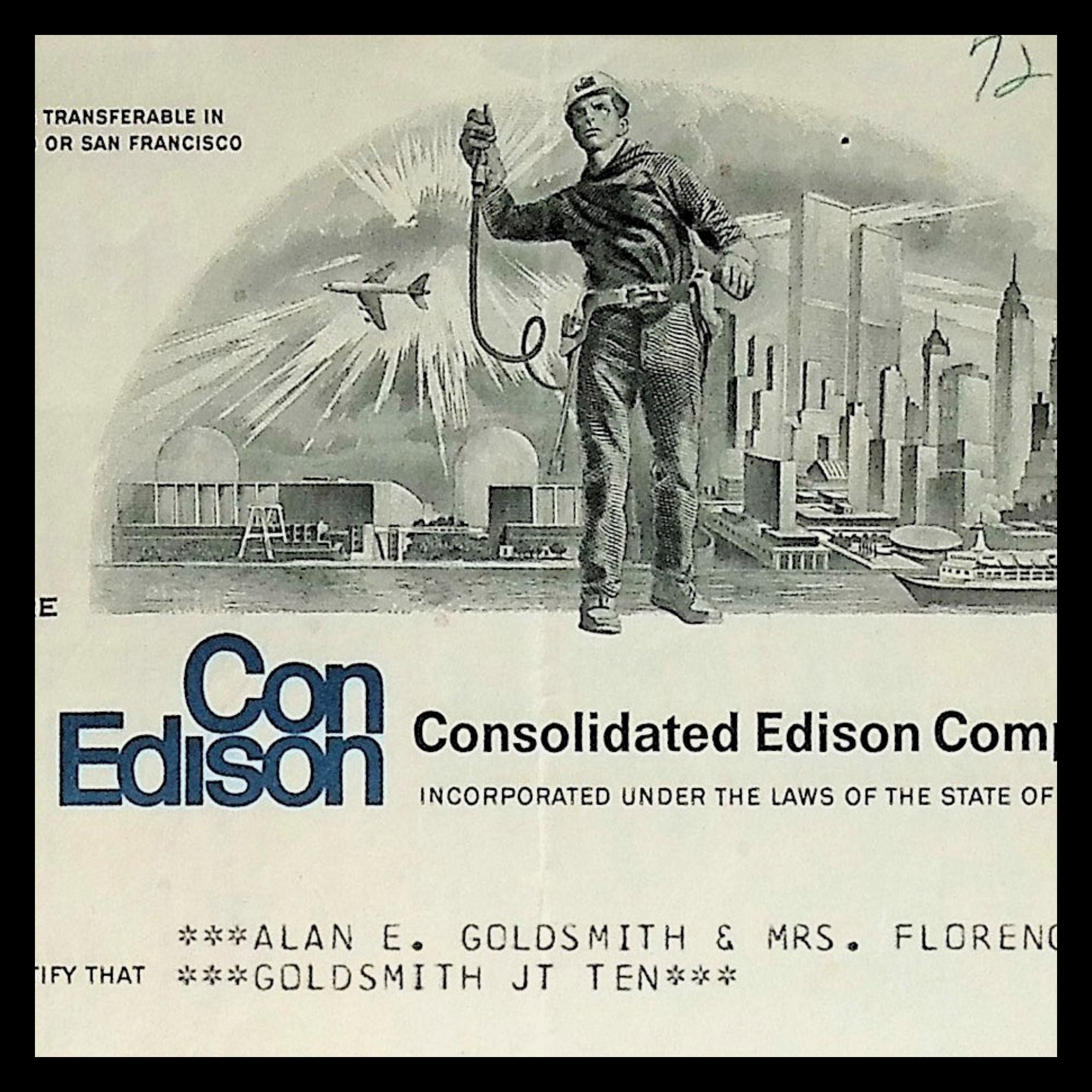Food Fair Properties, now Revlon, Stock Certificate from 1960s
Food Fair Properties, now Revlon, Stock Certificate from 1960s
Couldn't load pickup availability
Are the certificates authentic?
Are the certificates authentic?
Yes, all of the certificates we sell are authentic stock and bond certificates unless otherwise mentioned in the description. At one point in time, this certificate represented a share of of the company, or a bond receipt. These certificates have been removed from circulation and digitalized, as seen by cancellation holes, stamps and writing on the certificate. We offer these certificates as a collectable item, not a security.
This is a green stock certificate from Food Fair Properties, Inc., issued in 1960s, features cancellation holes, stamps, and handwriting. Offered as a collectable.
Food Fair, which later became known as Pantry Pride, was a significant supermarket chain in the United States.
Founded by Samuel N. Friedland in the late 1920s with the first store in Harrisburg, Pennsylvania, Food Fair expanded rapidly. By 1957, the chain operated 275 stores, and at its peak, it had over 500 locations. Friedland’s family managed the firm until 1978, when it faced financial difficulties and entered bankruptcy.
In the late 1940s, the chain adopted the name Food Fair. Significant acquisitions included Setzer’s Supermarkets in 1958 and J.M. Fields Department Stores in 1961. During the 1960s, Food Fair enjoyed considerable success, with the “Pantry Pride” brand becoming more popular than the original “Food Fair” name. The company expanded into new sectors, including drug stores, gasoline stations, and shoe stores, and entered California and Nevada by purchasing the Fox Markets chain.
Financial troubles in the late 1970s led to the company’s bankruptcy in 1978. The new management team closed numerous stores, and by the early 1980s, the company, now known as Pantry Pride, had relocated to Fort Lauderdale, Florida. Pantry Pride underwent significant restructuring and asset sales, ultimately being acquired by Ronald Perelman in 1985. Perelman used Pantry Pride as a vehicle to acquire Revlon, changing the company’s name to Revlon Group by 1986. The remaining stores were either sold or closed by 2000.
Materials and care
Materials and care
Here are some quick tips to preserve your certificate for decades to come.
Paper quality: Stock certificates were printed on a variety of certificate paper dating back to the mid 1800s. Most of these vintage collectable certificates have signs of used & wear , cancellation holes, pencil / pen writing, stamps, staples, adhesives, slight rips, missing coupons and other features.
Handling: Always handle the certificate with clean, dry hands or use cotton gloves to avoid transferring oils and dirt from your skin onto the paper.
Storage: Store the certificate in a cool, dry place away from direct sunlight, which can cause fading. Use acid-free folders or archival-quality plastic sleeves to protect it from moisture, dust, and physical damage.
Framing: If displaying the certificate, use a frame with UV-protective glass to prevent light damage. Ensure the certificate is mounted using acid-free materials to avoid any chemical reactions that could degrade the paper over time.
Avoid Exposure: Keep the certificate away from direct sun, extreme temperatures and humidity, which can cause the paper to warp or deteriorate. Avoid exposing it to pollutants, such as smoke or chemicals, which can cause discoloration.
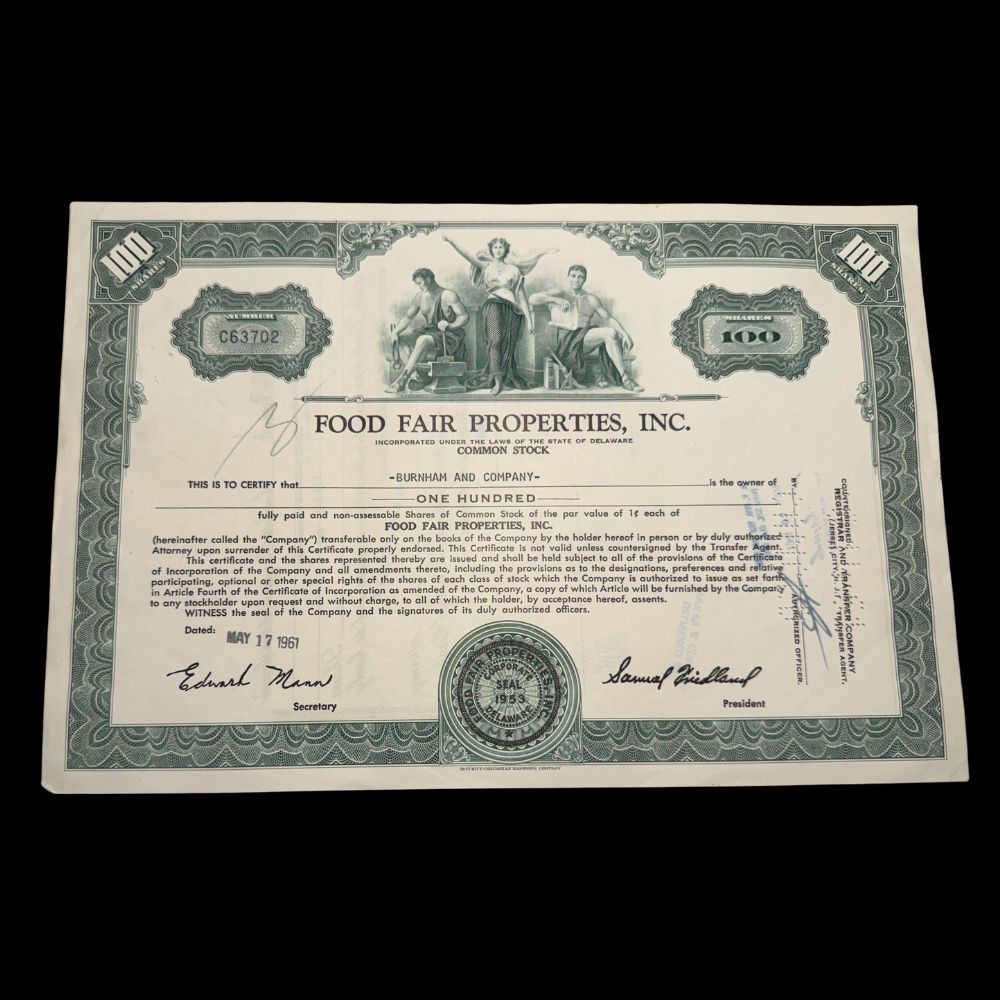
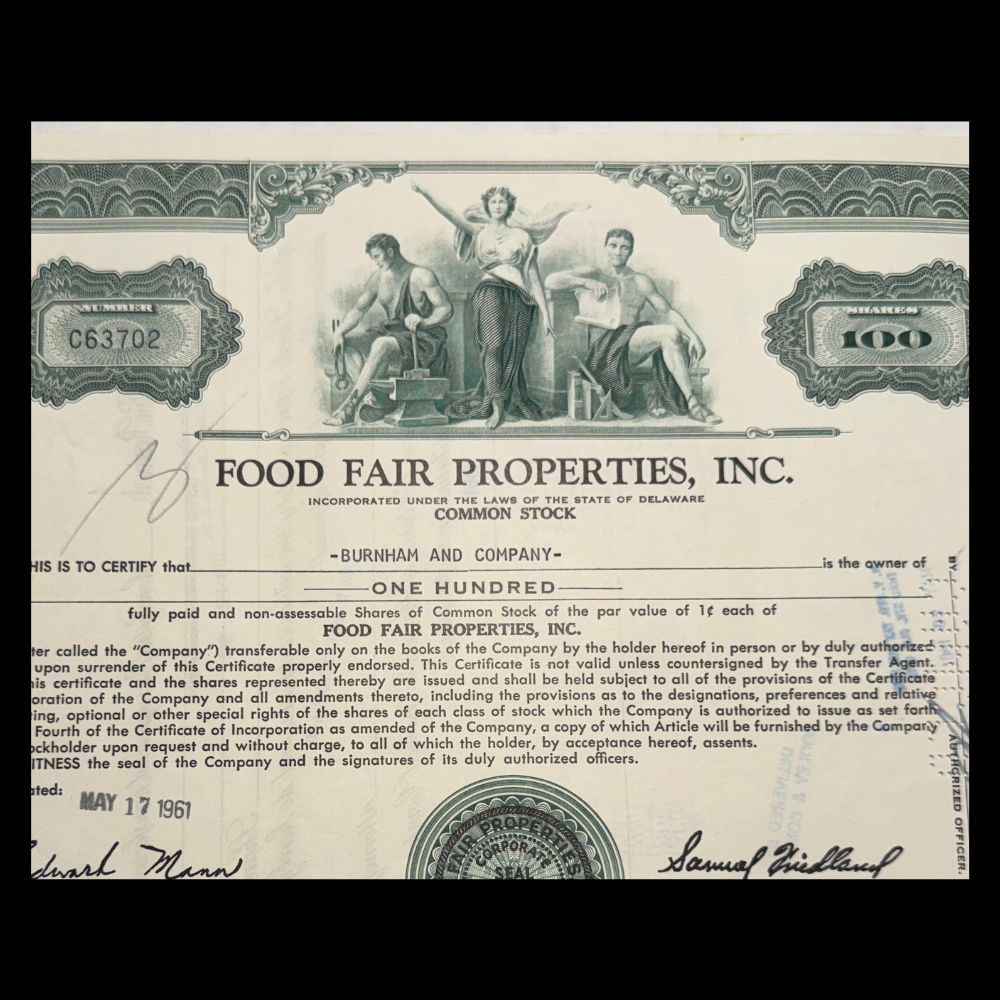
On orders over $30
Or your money back
Trust us to build their collection
Secure payment with all major providers
Trusted By Thousands of Collectors
Let customers speak for us
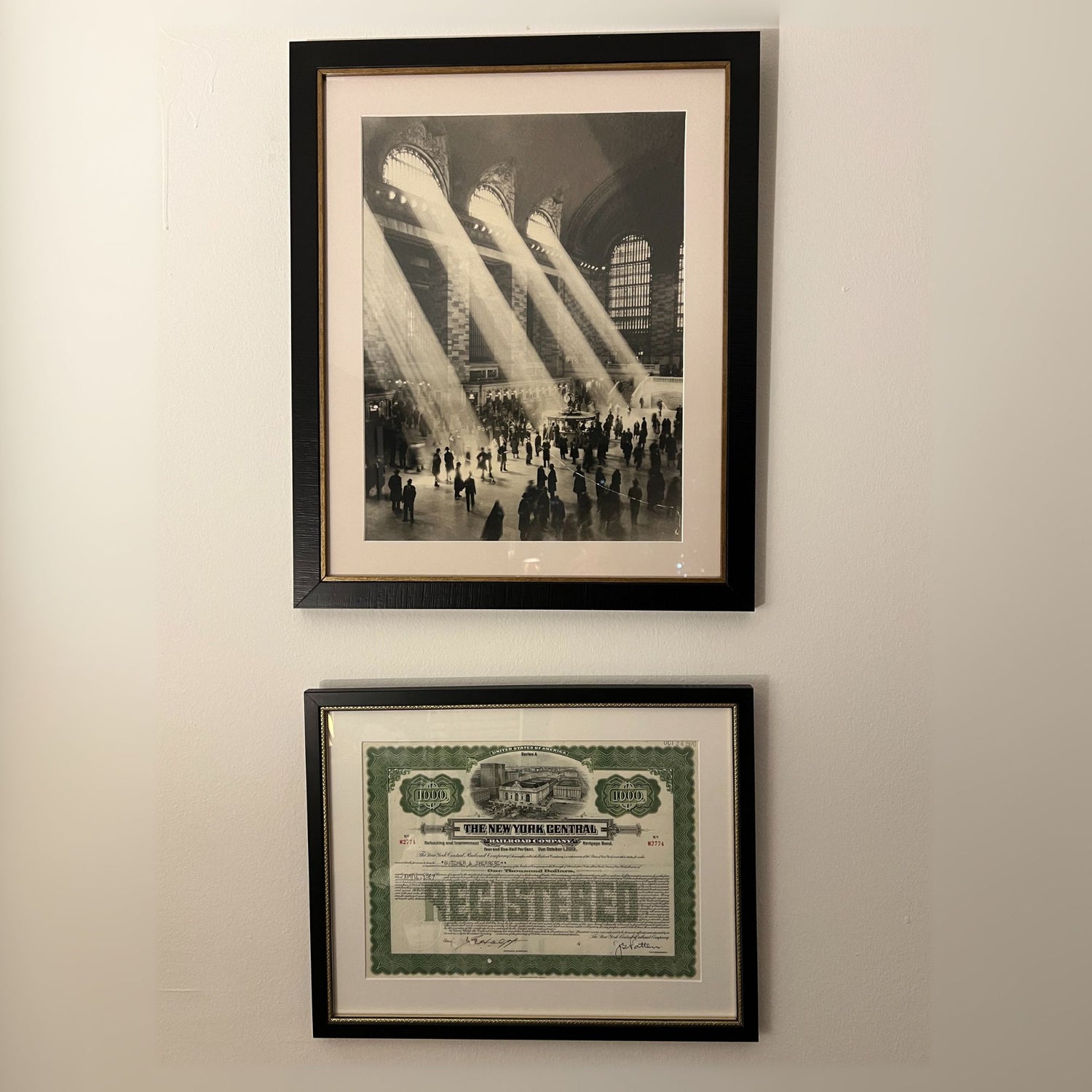
Art with a Backstory
Every Certificate Tells A Story
Turn rare stock and bond certificates into timeless décor. Piece showcases bold colors, engravings, and historic signatures perfect for an office, library, bar, common area, museum & more.
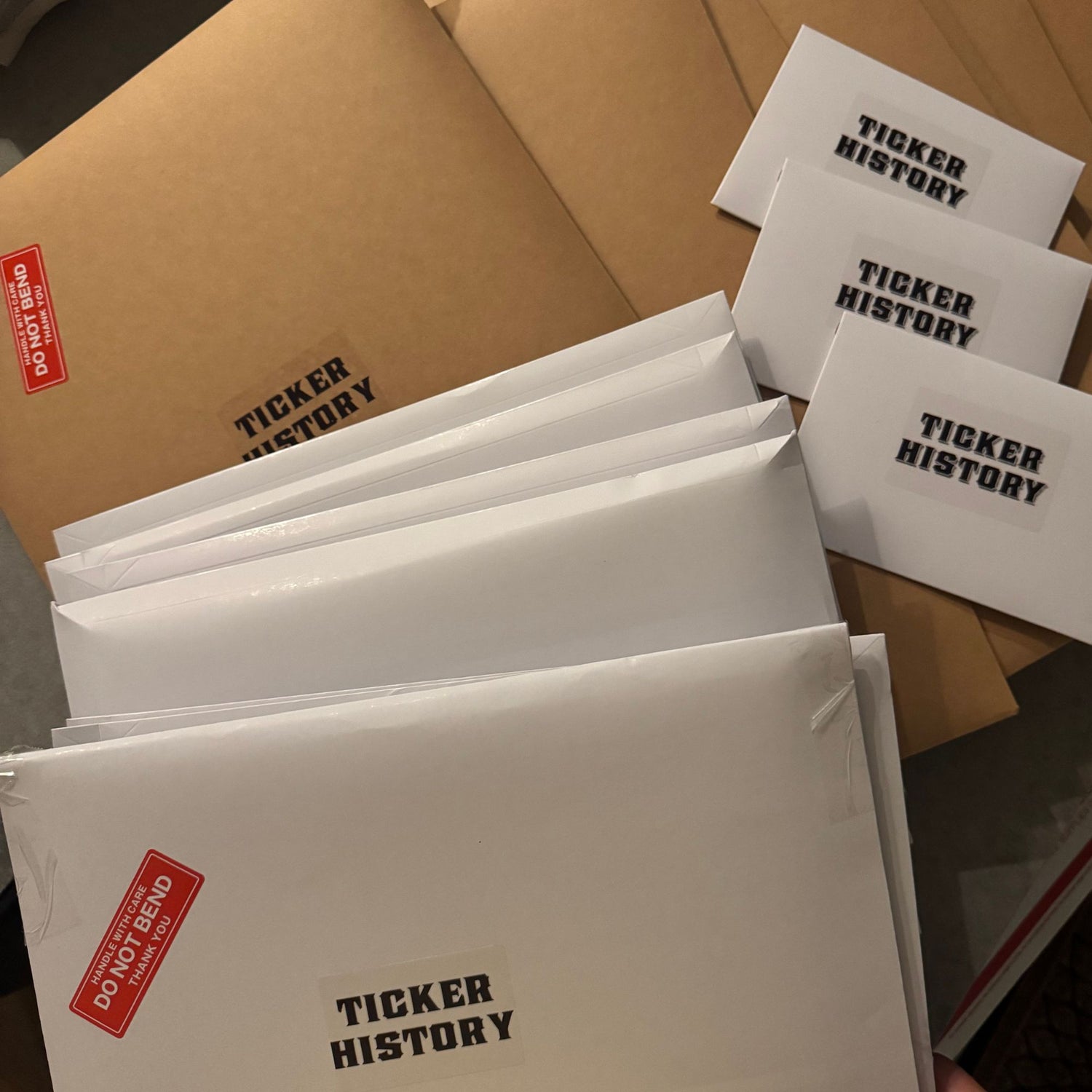
Orders Ship Daily
Direct From Wall Street's Archives
Orders are shipped flat with care, tracked & insured with USPS, in a strong, rigid, protected envelope. Daily fulfillment Monday - Thursday from NYC.
Railroad Stock & Bond Certificate Collectable Bundle Five Pack - 4x Stocks & 1x Bond
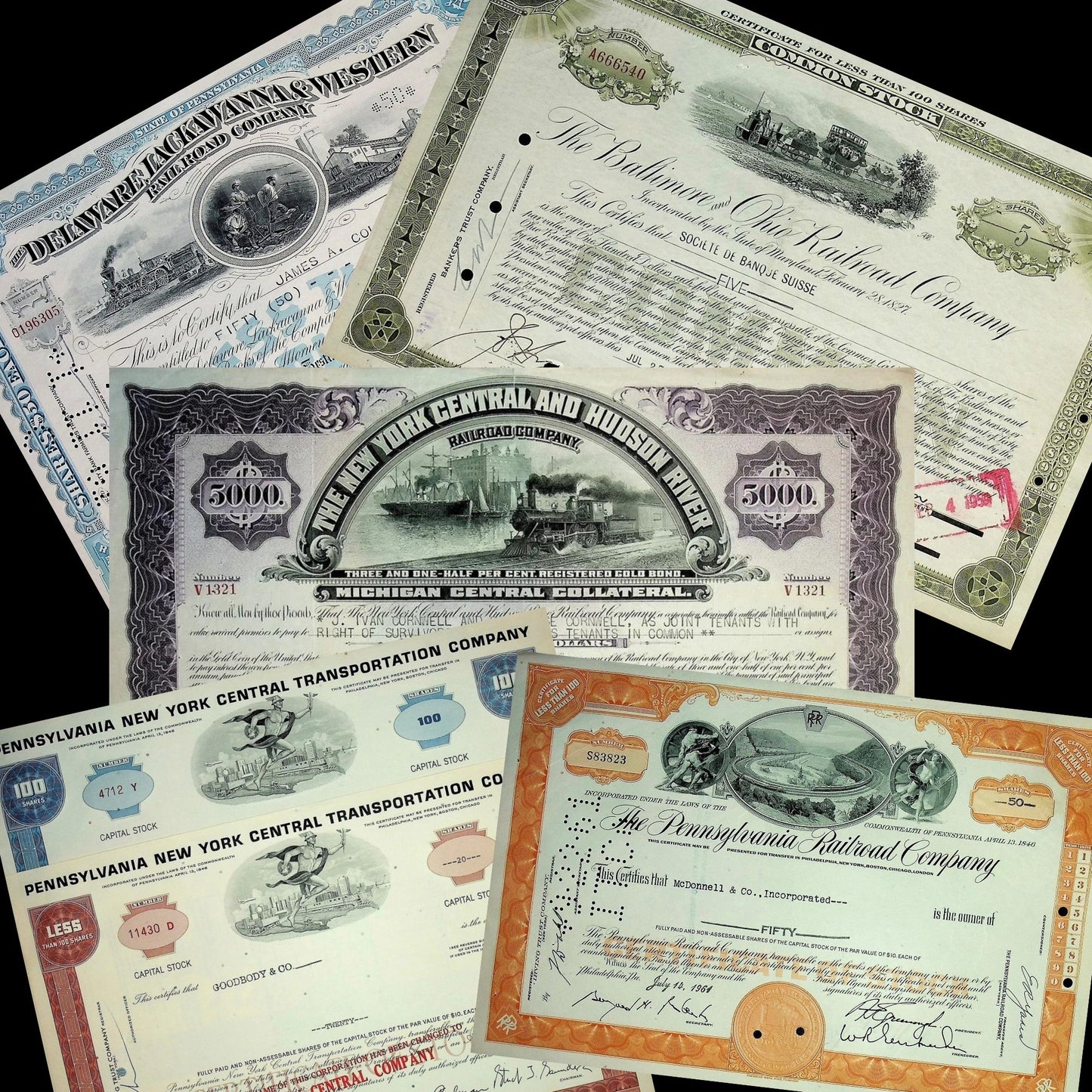
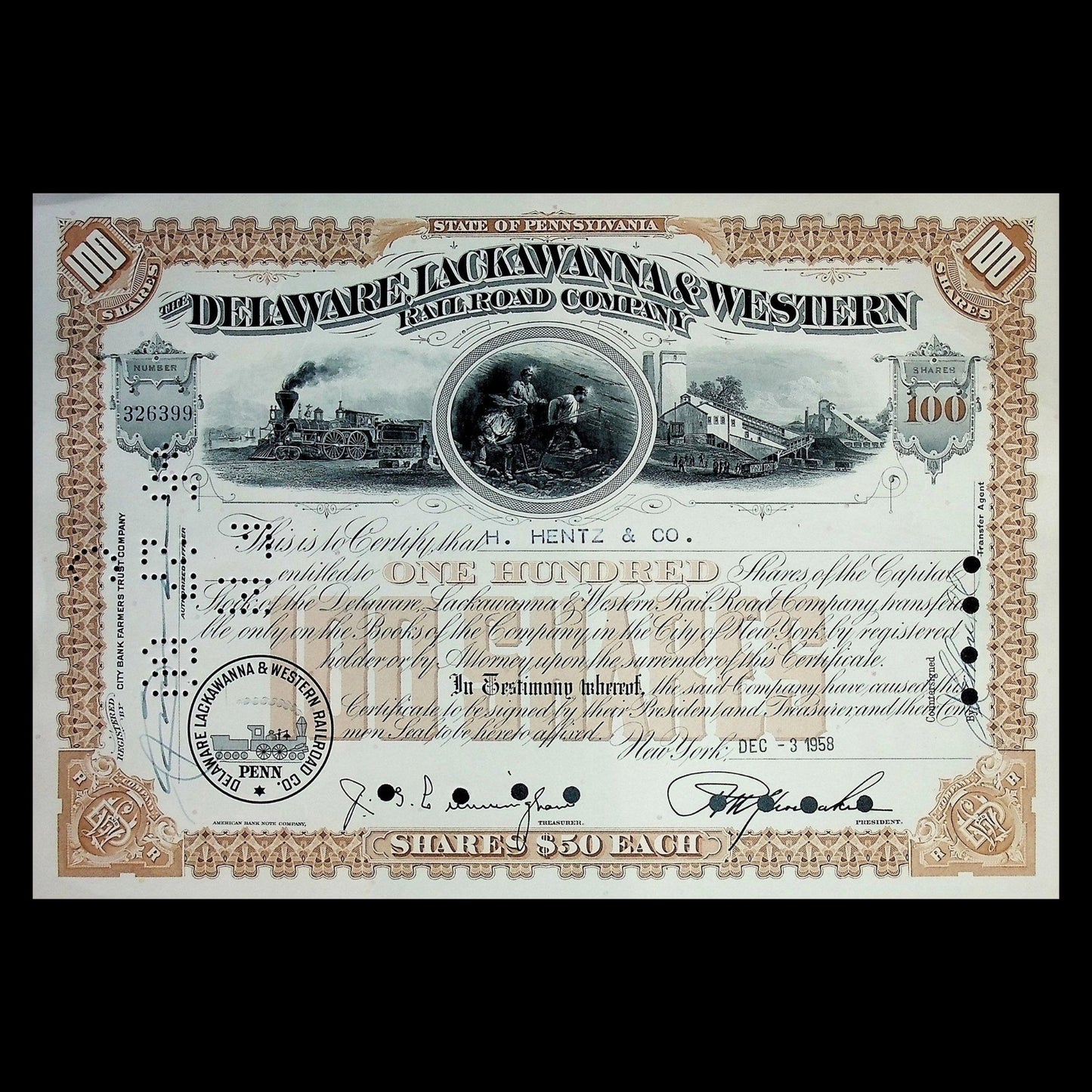
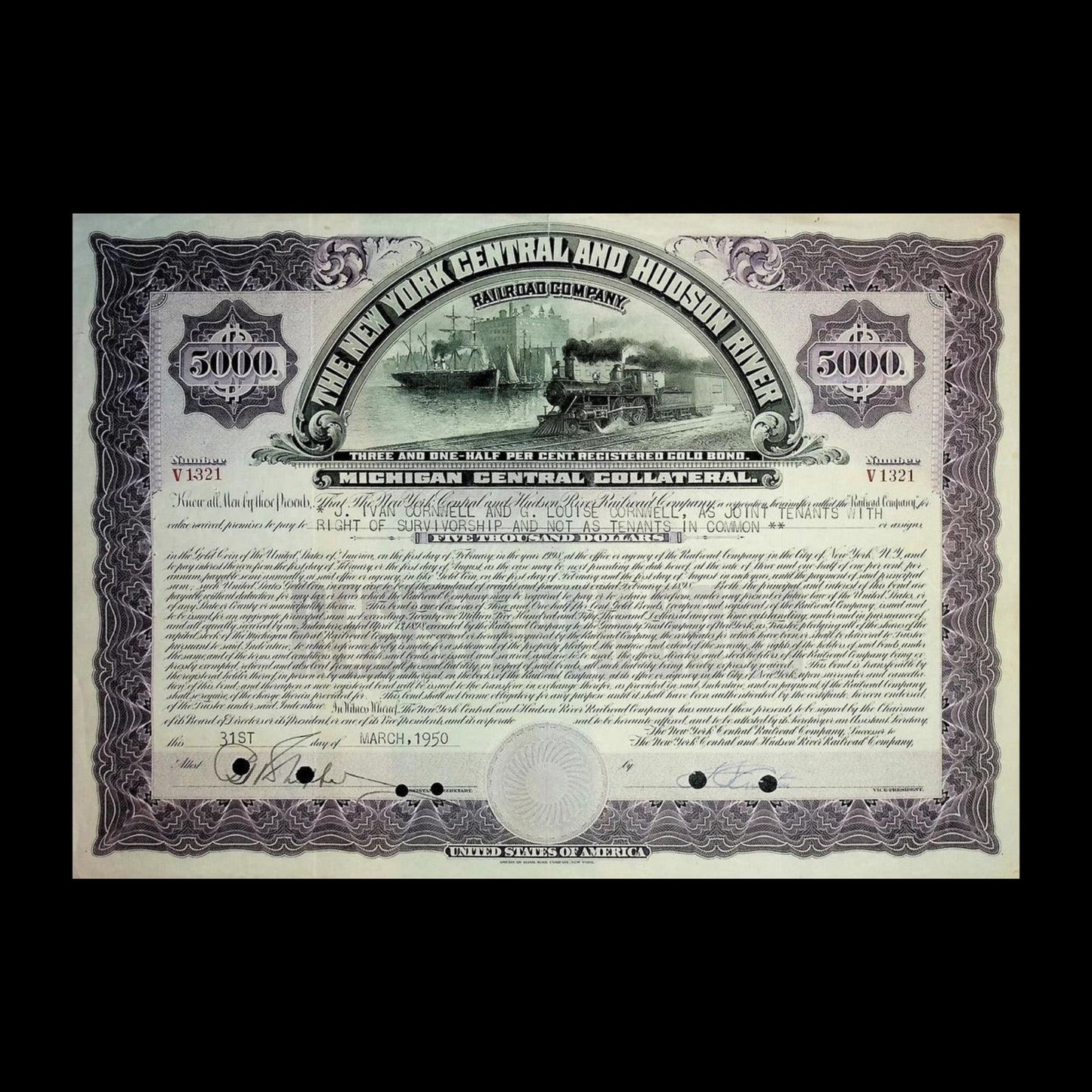
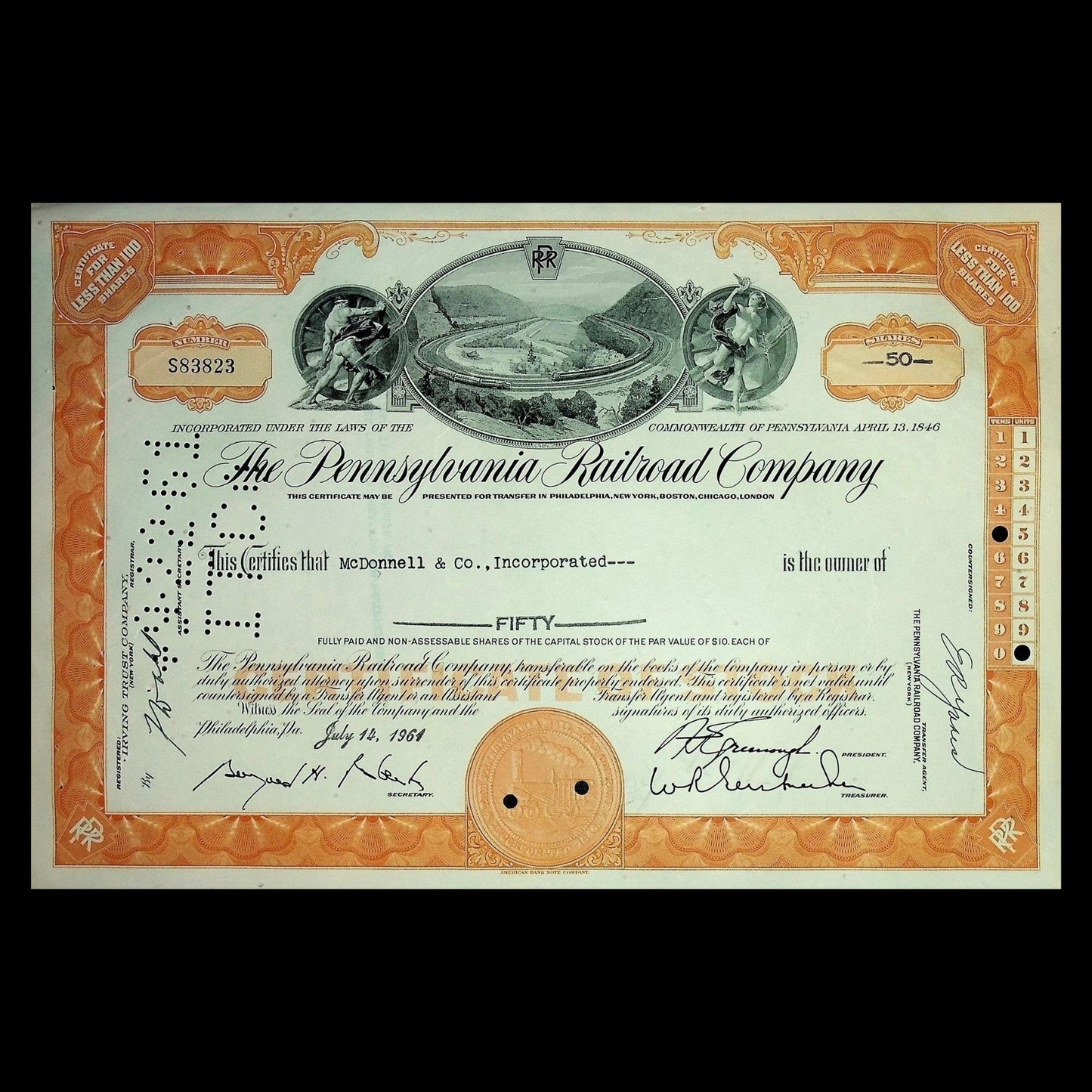
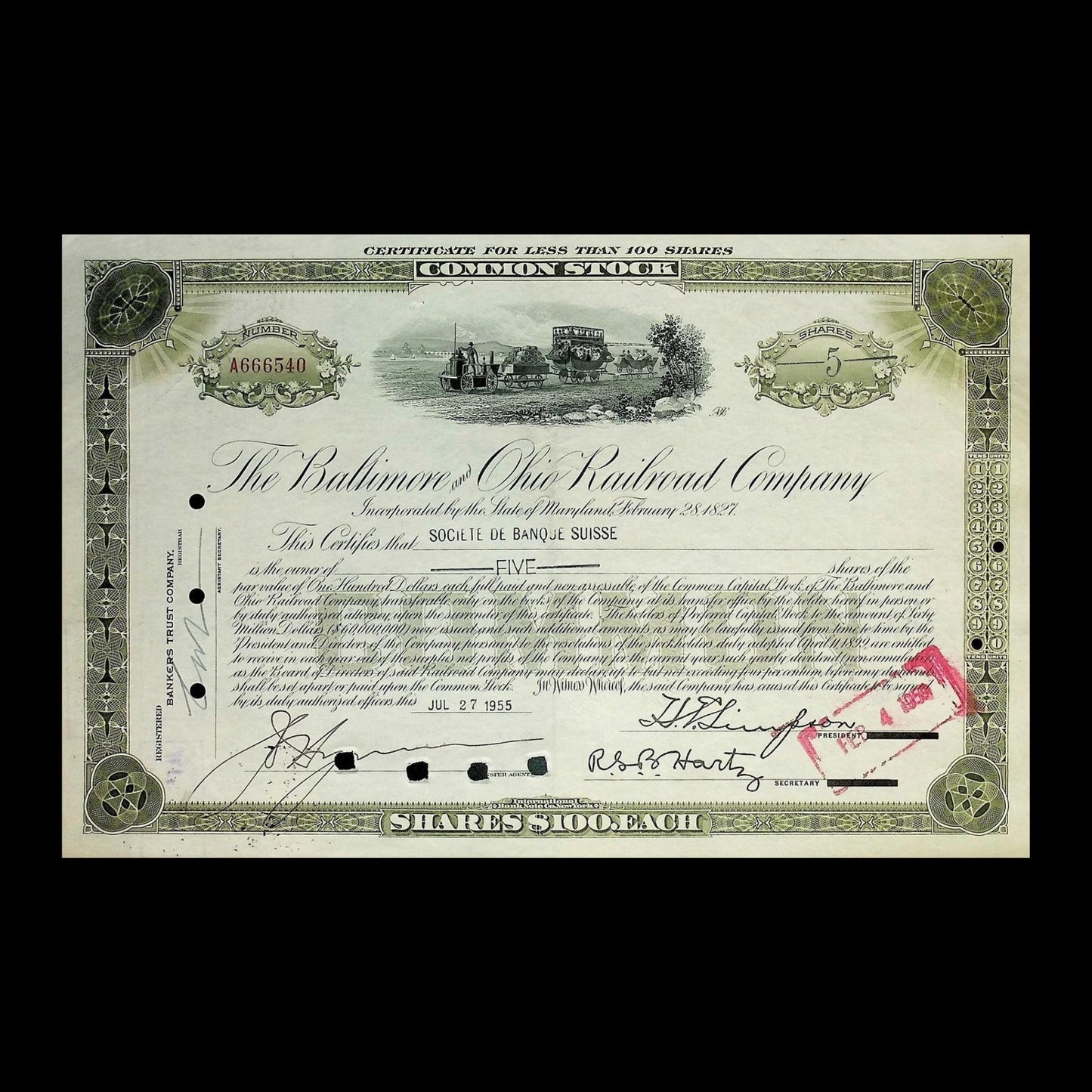
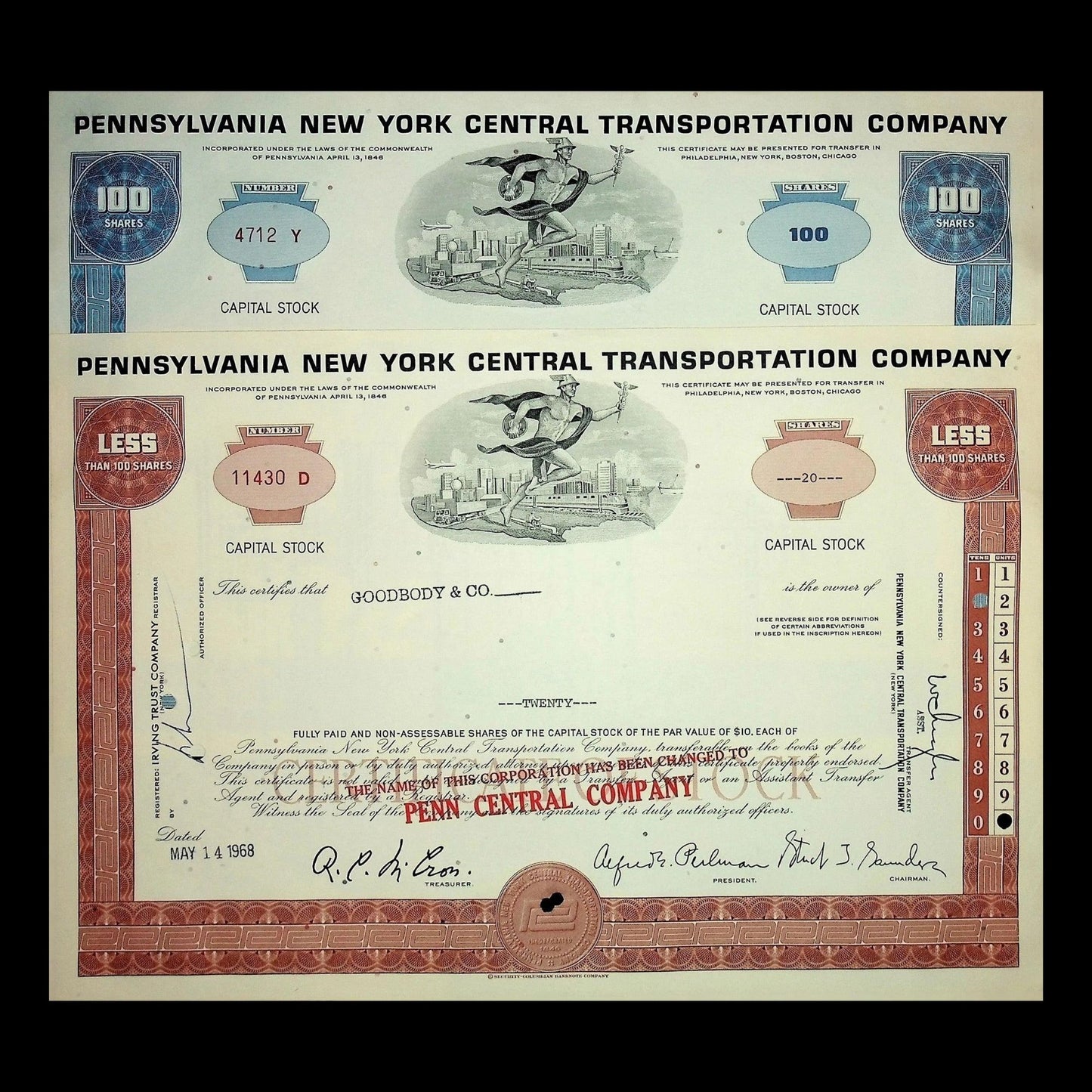
Discover 1,000s of Wall Street Collectables
Explore Our Collections
-
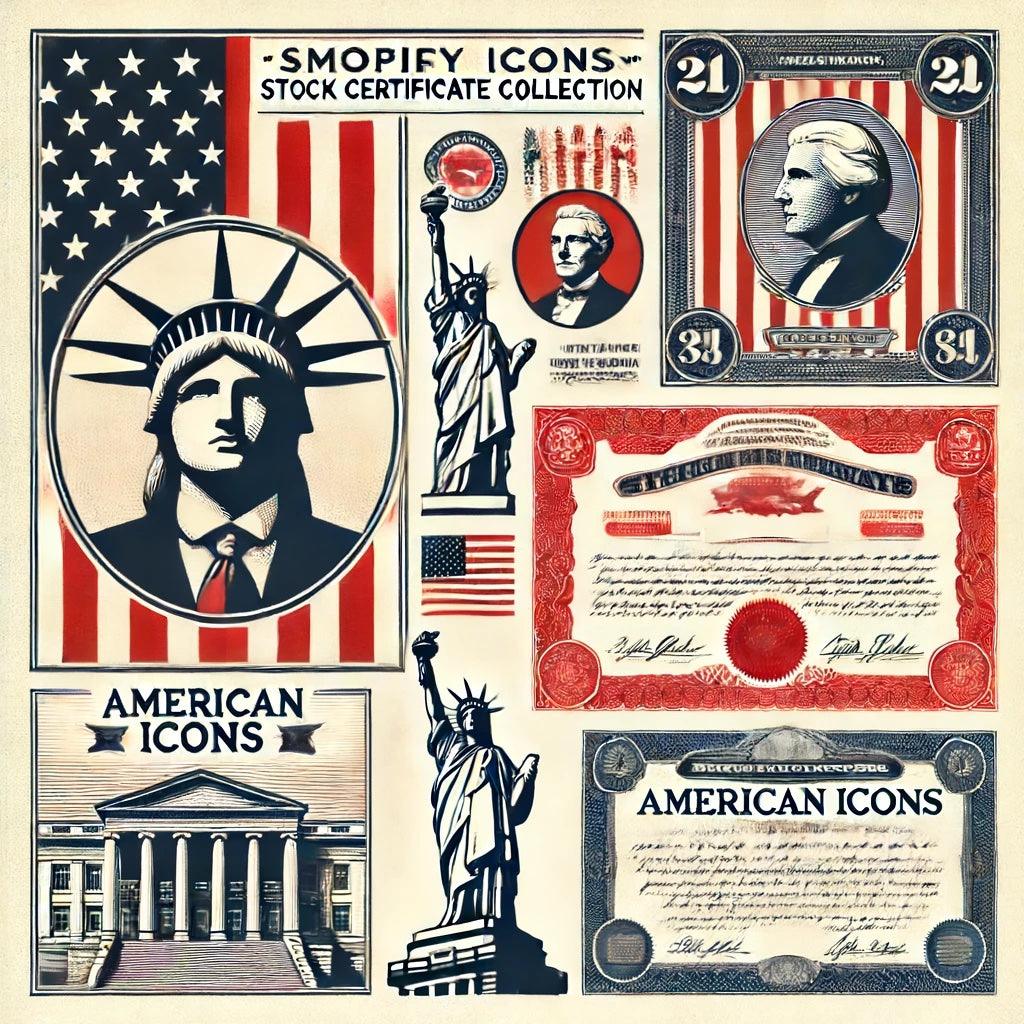
American Classics
Showcasing the evolution of American industry through beautifully engraved certificates from iconic...
-

Banks, Insurance & Investment
Discover the rich history of American finance with our collection of authentic...
-
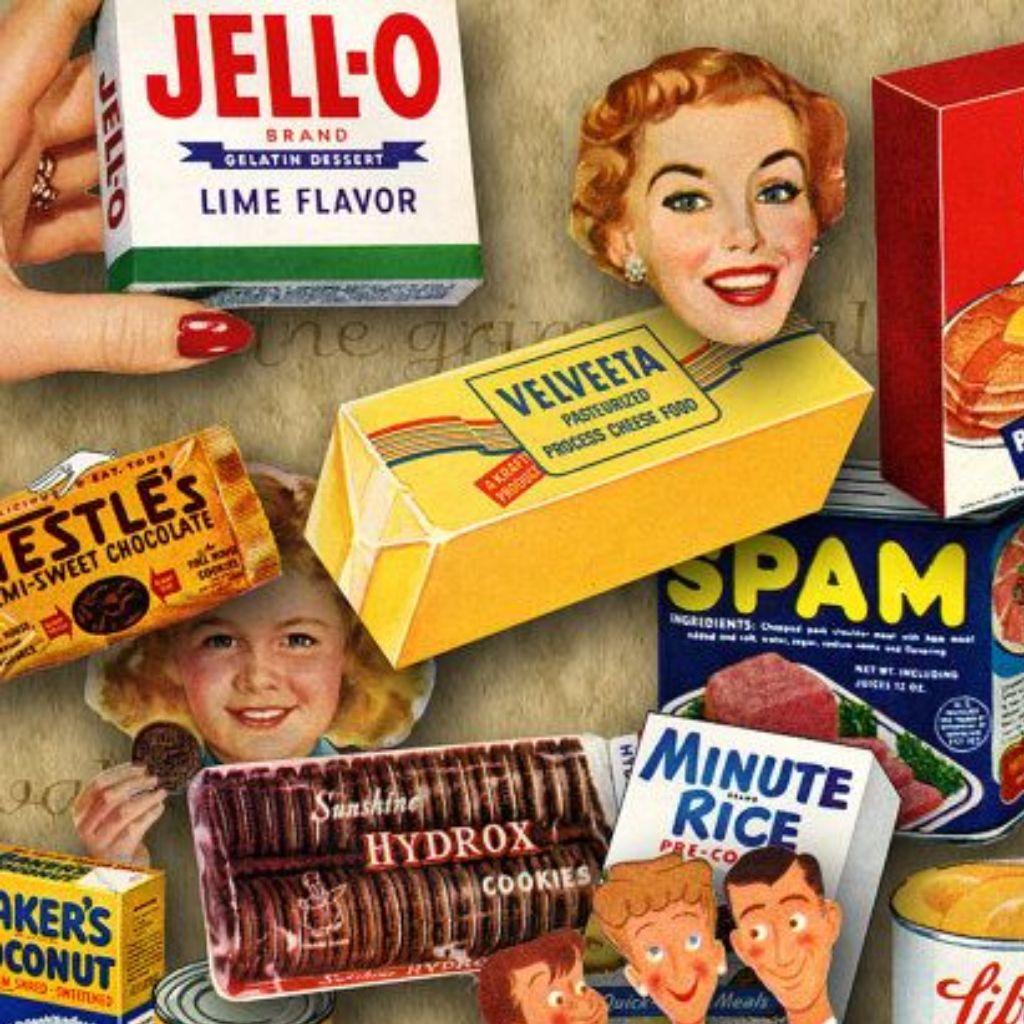
Food & Drink
Collectible Food & Drink Stock & Bond Certificates for Sale - Hershey's, Nabisco,...
-
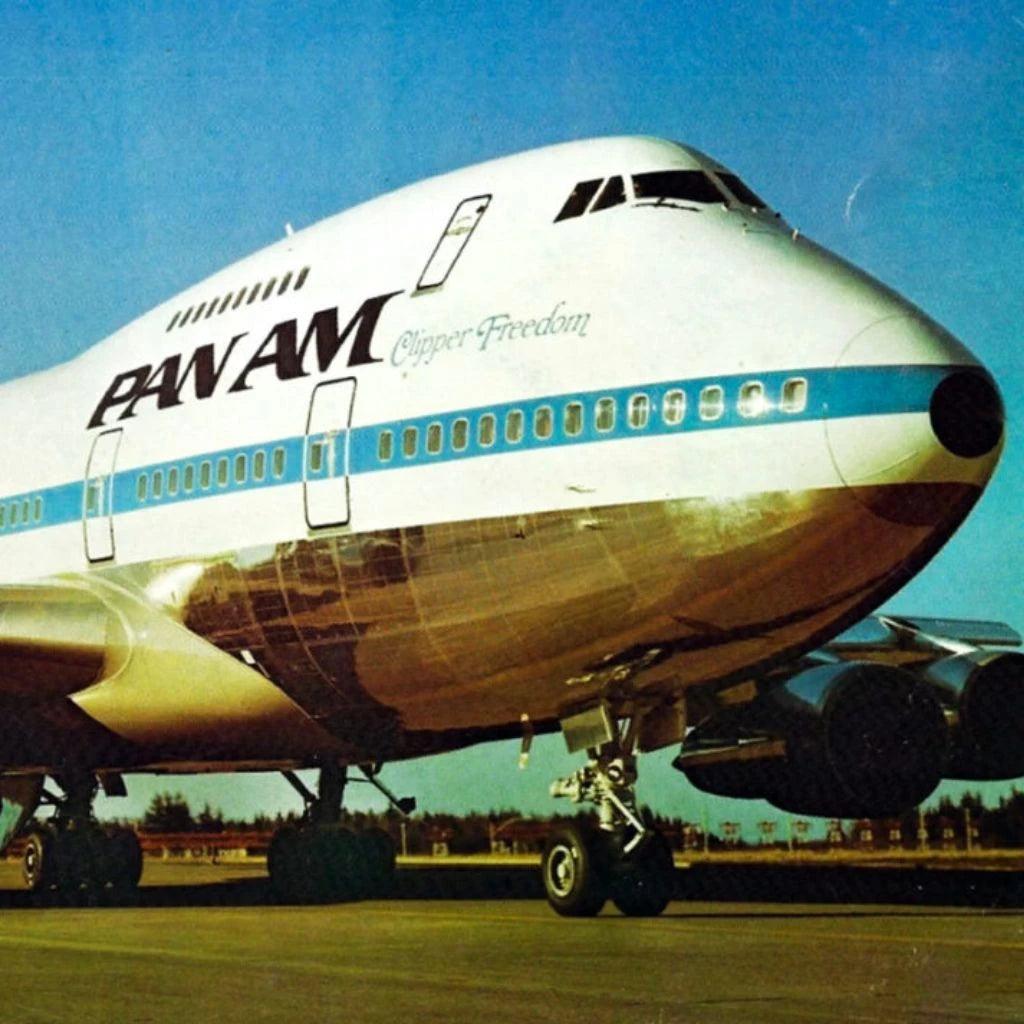
Transportation
Discover our collection of collectable stock and bond certificates for sale from...
-
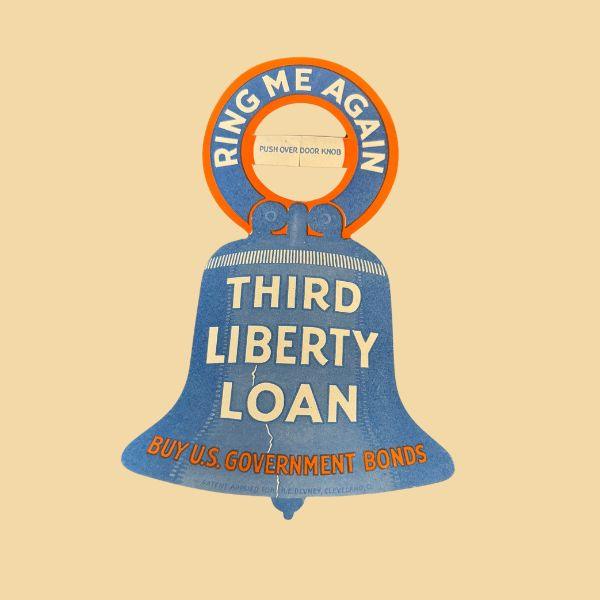
World Wars
Discover our unique collection of World War-era bonds and Disney wartime memorabilia,...




